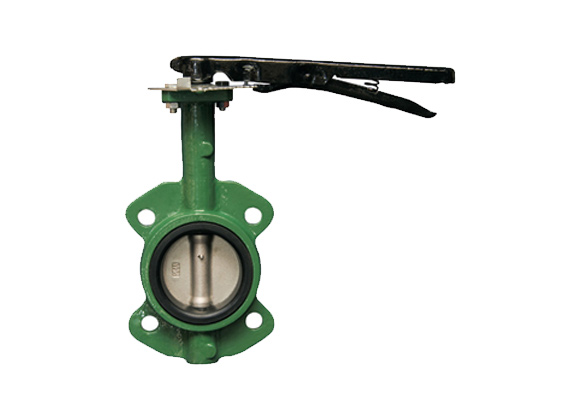Jul . 30, 2025 14:20
Manual butterfly valves are essential components in various industrial and commercial applications, offering a reliable and cost-effective solution for controlling fluid flow. These valves are operated manually, typically through a lever or gear mechanism, making them ideal for scenarios where automated systems are not required. This article delves into the manual butterfly valve specifications, advantages, and applications, providing a comprehensive guide for engineers and procurement professionals.
Manual butterfly valves are characterized by their simple structure, lightweight design, and ease of installation. They are commonly used in pipelines for regulating the flow of liquids, gases, and other media. The valve's operation is straightforward, involving a disc that rotates within the valve body to open or close the passage. This manual operation ensures minimal maintenance and long-term reliability, making them a preferred choice in many industries.

One of the primary advantages of manual operated butterfly valves is their straightforward design. Unlike pneumatic or electric actuators, manual valves do not require complex mechanisms, reducing the likelihood of mechanical failure. Their compact size and lightweight construction also simplify installation, saving both time and labor costs.
Manual butterfly valves are available in a range of materials to suit different operational environments. Common materials include grey cast iron, ductile cast iron, stainless steel 304/316, and carbon steel. The disc and stem are typically made from stainless steel 410/416/304/316, while the seat materials include EPDM, PTFE, and Viton. These materials ensure durability and resistance to corrosion, making the valves suitable for diverse applications.
Manual butterfly valves are designed to handle a broad range of pressures, including CLASS 125/150, PN10/16/25, and 5K/10K/16K. This versatility allows them to be used in both low-pressure and high-pressure systems, catering to the needs of various industries.
| Component | Materials |
|---|---|
| Body | Grey Cast Iron, Ductile Cast Iron, Stainless Steel 304/316, Carbon Steel |
| Disc | Ductile Cast Iron (Nickel-plated or Nylon coated), Stainless Steel 304/316, Aluminum Bronze |
| Stem | Stainless Steel 410/416/304/316 |
| Seat | EPDM, BUNA-N, PTFE, Viton, Hypalon, Neoprene, Metal Seated |
| Pressure Ratings | CLASS 125/150, PN10/16/25, 5K/10K/16K |
| Standards | API 609, BS5155, MSS SP-67/68, EN593 |
Manual butterfly valves are widely used in industries such as water treatment, HVAC, chemical processing, and food and beverage manufacturing. Their ability to handle a variety of media makes them suitable for applications ranging from simple water supply systems to complex industrial pipelines. For example, manual exhaust butterfly valves are often employed in ventilation systems to regulate airflow.
Proper installation is critical to ensure the valve's performance and longevity. Key steps include:
Ningjin Thriveon Valve Co., Ltd., based in Hebei, China, is a leading manufacturer of high-quality valves, including manual butterfly valves. With years of experience in the industry, the company is committed to providing reliable solutions for global customers. Their product range includes manual wafer butterfly valves and manual butterfly valves with limit switches, catering to diverse industrial needs. As a manual butterfly valve manufacturer, Ningjin Thriveon ensures compliance with international standards, delivering products that meet the highest quality and performance criteria.
A manual butterfly valve is a type of valve operated manually, typically through a lever or gear mechanism. It includes gear-operated valves and lever-operated valves, offering a simple and cost-effective solution for flow control.
Manual butterfly valves are easy to install, have a simple structure, and are lightweight. Their design reduces maintenance requirements and ensures long-term reliability, making them ideal for applications where automated systems are not necessary.
Manual butterfly valves are indispensable in modern industrial systems, offering a balance of simplicity, durability, and cost-effectiveness. With their versatile materials, wide pressure range, and ease of installation, they are suitable for a broad spectrum of applications. As a trusted manual butterfly valve manufacturer, Ningjin Thriveon Valve Co., Ltd. continues to innovate and provide high-quality solutions that meet the evolving needs of the global market.
According to the National Institute of Standards and Technology (NIST), standards play a critical role in ensuring the interoperability and reliability of industrial components. The specifications of manual butterfly valves align with international standards such as API 609 and EN593, which are essential for quality assurance and performance validation.
Related Products
 Call us on:
+86-311-86935302
+86-311-86935302
Call us on:
+86-311-86935302
+86-311-86935302
 Email Us:
info@thriveonvalve.com
Email Us:
info@thriveonvalve.com South of Huanmadian Village Town, Ningjin County, Xingtai, Hebei Province, China
South of Huanmadian Village Town, Ningjin County, Xingtai, Hebei Province, China